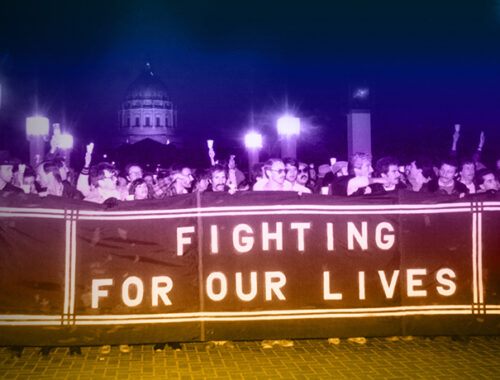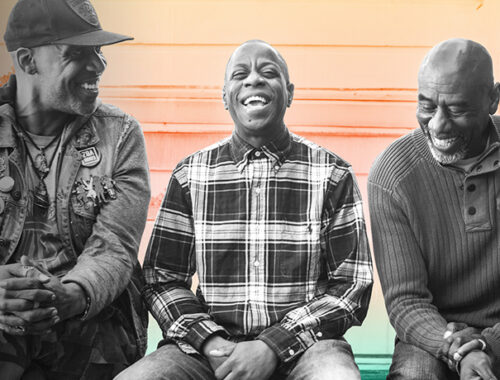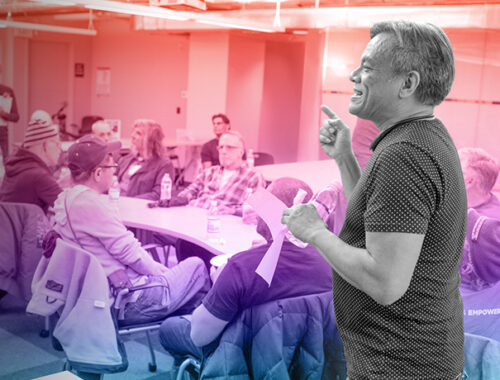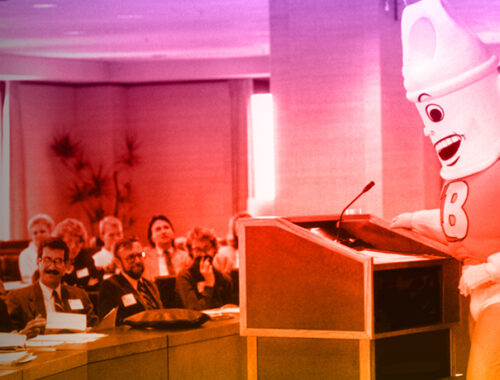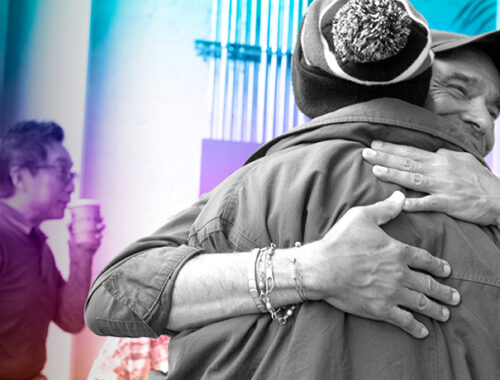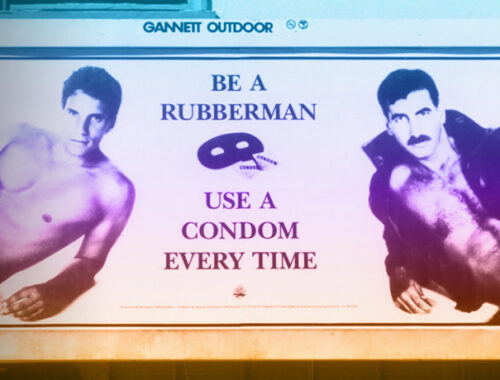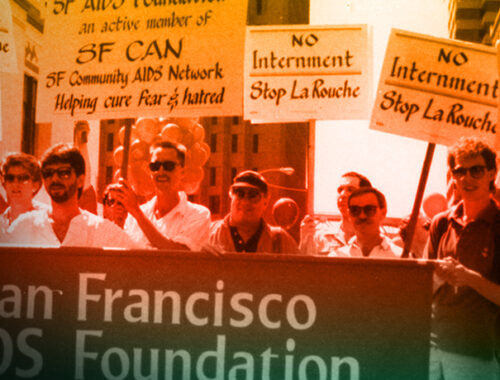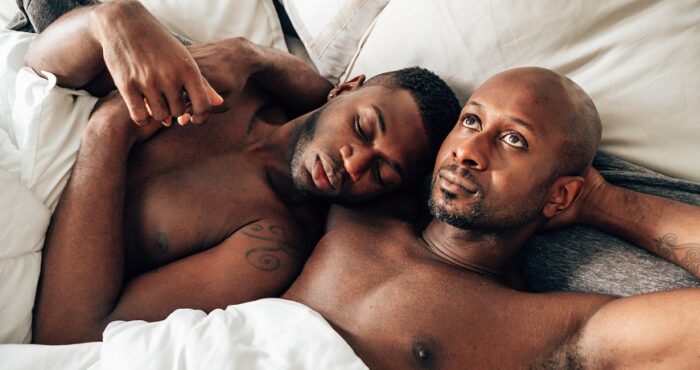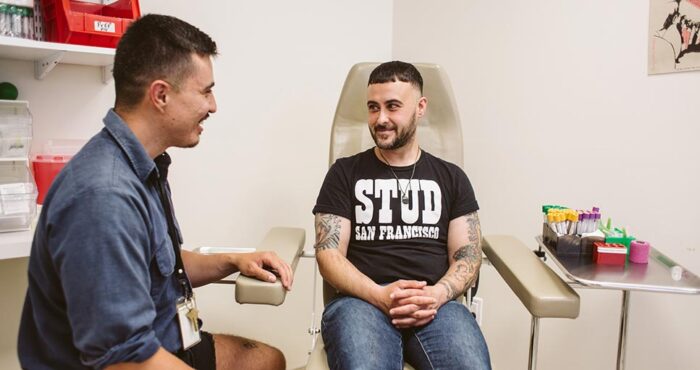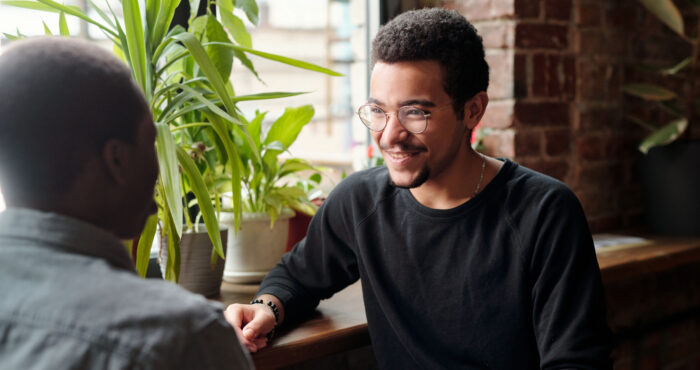A decade of PrEP: This bottom’s permission to fantasize without fear
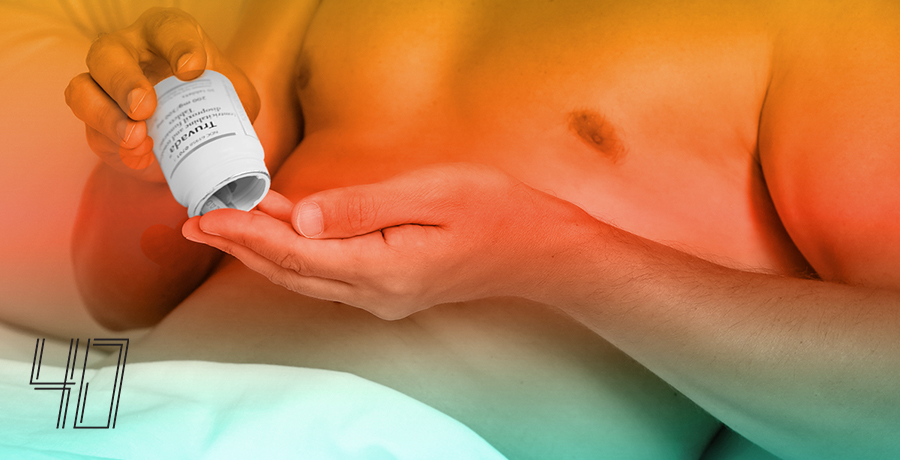
This article was produced in honor of San Francisco AIDS Foundation’s 40th anniversary, which we are commemorating in 2022.
My parents found out I was gay at the ripe old age of 14. One of the first things they told me was that most men “like that” end up getting AIDS. I knew this already, of course. One of my friends who was just a few years older than me tearfully told me of his recent diagnosis. It was 1997 in North Carolina. Brand new antiretroviral treatments were saving lives, but, for gay men, AIDS and death still seemed like destiny.
I lived with that fear and impending sense of dread for my entire sexual upbringing. I started meeting men online for sex when I was a teenager, long before Gay.com (much less Grindr) would make that mainstream. Sometimes my partners used condoms when they fucked me. Sometimes they didn’t.
I’ll never forget those moments they didn’t. Fear and anxiety, yes. But also adrenaline, sweat, and—over time—a kind of thrilling intensity. As a bottom, letting men inside me without a condom also came to signify a kind of submission in my mind—a way of giving myself up to a man, knowing full well that, as a bottom, the risk was more mine than it was his. It would take years—and a few doses of Truvada—for me to be able to fully explore that desire to submit and please more fully.
That all began to change for me in 2012 when I swallowed my first Truvada pill. In the weeks that followed, I tried to make sense of this new technology through writing. I authored a 19-part blog series called “My Life on PrEP” for the now-defunct e-magazine, Positive Frontiers (thanks to the Internet Archive, you can still find the posts here). The opening salvo in my first column penned as Jake Sobo, a pseudonym, describes my desires:
Over the past three years, I’ve noticed something about my sex life. For a host of reasons that this column will be exploring, I’d all but stopped using condoms. This set-in most clearly during a recent out-of-town trip when a guy whose Manhunt profile lectured others about “wrapping it up” spit on my hole, shoved it in, and fucked me raw. I was absolutely ecstatic. In that moment – caught off-guard by expectations and overcome with pleasure – I realized just how much my desires had changed.
I wasn’t a “bug chaser” or seeking out HIV infection, per se. But I knew that I was playing a game with certain odds, and it was precisely those odds that made it all so titillating.
Let’s be real: This nexus of eroticism and gut-wrenching anxiety is the only reason the word “bareback” was ever coined. It exists only in relationship to the fear of HIV, to gay men’s dance with destiny. Without the specter of HIV looming over your shoulder, condomless sex is just sex. Just ask straight people.
In the immediate years after PrEP’s launch in 2012, condoms were still pretty much assumed to be the norm. You had to specifically seek out partners for condomless sex, and many guys would turn you down. Today, it’s exactly the opposite. There are still plenty of men using condoms, but if you meet a trick on Grindr and nobody says a peep about protection, you can safely be sure that no one is planning to wrap it up. Condoms are slowly becoming the exception, not the rule.
To this point: A few weeks ago, I invited over a guy I met on Grindr. We started making out, getting naked, shimmying awkwardly backwards towards the edge of the bed. I laid on my back, legs spread, with him standing above me. The time to fuck had arrived. But instead of getting into position, he picked up his jeans from the floor. Without missing a beat, I said, “oh I have poppers on the nightstand.” But instead of poppers, he pulled out a condom from his pants pocket. I was genuinely surprised. “How retro,” I thought to myself. I awkwardly told him I was on PrEP and that he could skip the condom if he wanted. Undeterred, he slipped it on and slipped in me. I hadn’t used one in so long that I half-expected it to hurt. (I’m not exactly being dramatic here—condoms can chafe, especially without sufficient lubrication.) To be honest, it felt great.
But don’t just take it from me—we need only look to porn studios to see the shifting norms in action. According to a 2021 review, there is just one gay porn studio left that does not produce condomless porn. Even porn’s most condom-ardent director, Chi Chi LaRue, threw in the towel and released their first condomless film in 2018. Treasure Island Media, once a fringe studio because of its explicit fetishization of condomless sex, has gone mainstream.
In a cinematic world without condoms, what even is “bareback” porn anymore? Do we even need to bother to call it that? PrEP and treatment as prevention is slowly sucking the meaning out of that pornographic universe by reducing condomless sex to a plain jane affair. What space to play is left in the void created? Treasure Island Media’s recent releases suggest they’re finding other fetishes to market—some based on the stars’ demographics (warning, links are NSFW: Latino guys, Black guys, and FTM guys), others based on the kinks depicted (e.g. physical abuse and piss play). Of course, plenty of their films still market “breeding” cumdump bottoms, but that rhetoric goes beyond the mere absence of a condom and resignifies condomless sex as a form of masculine domination (for the top) and feminine subjugation (for the bottom).
These shifts are only possible because of PrEP and treatment as prevention. I realized this most keenly on a recent trip to Mexico, where PrEP remains prohibitively expensive for all but the wealthy. I always bring my friend there a 30-day supply when I visit. My insurance sends me 90-days’ worth of pills every three months. After a decade, you wind up with excess.
My friend and I met over coffee, and I handed him the fresh, sealed bottle. He told me that PrEP gave him what he called, mixing Spanish and English, “little permisos”—little permissions. In his case, it gave him permission to explore those fantasies he always held back from, particularly those fantasies around bottoming—of being fucked by a group of guys, or anonymously in a sling at a bathhouse.
Reflecting on my upcoming 10-year anniversary of starting PrEP, I can see so plainly how PrEP has given me permission to explore more fully my role as a sub. Giving up control in a world where HIV risk was so tied to sex meant putting your health in someone else’s hands. Indeed, social scientists have argued that bottom identity is not so much about a desire for receptive anal sex as it is a desire to please and to give up control to your partner. With PrEP, I can push that fantasy to its limits without fretting over whether my partner might choose to not use a condom (in truth, I plead with them to “knock my ass up”).
Getting fucked, of course, involves more types of fear than just that of contracting HIV. Some physical in nature: The fear that it will hurt, or the fear that your best douching efforts weren’t enough. Other fears, more psychological in nature, such as the fear of a kind of shattering of normative masculinity noted by queer theorist Leo Bersani in his classic 1987 essay, “Is the rectum a grave?”
HIV straddled both realms. As a virus, we fear what it might do to our bodies. As a plague, we live in queer communities traumatized by AIDS and in fear of the anti-gay stigma that conservatives used AIDS to justify.
By decoupling sex from HIV risk, PrEP can do for queer men (at least those with access to it) something like what birth control did for heterosexual women in the 1960s. Both technologies give us permisos—permission to have sex for pleasure, without fear of an unwanted visitor (for women, unintended pregnancy; for gay men, HIV).
For HIV-negative bottoms and for heterosexual women, PrEP and birth control took the prophylactic power out of the hands of insertive partners and into those of the receptive partner. That kind of power shift can be liberating: I never depend on the kindness of tops.
This mirrors what some HIV-positive men say about seroconversion: that sex after testing positive comes with a kind of liberation from fear. This was my husband’s experience, who tested positive before we met. For those who have access to treatment and care that can render their viral load undetectable, testing positive can be similarly liberating.
I can say without question that PrEP has changed my life. I am no longer that 14-year-old boy convinced of my impending HIV infection. Or that 21-year-old college kid with a swollen lymph node, sitting at the clinic and having a panic attack as I wait for my test results. Or even that 30-year-old guy, ecstatic when my allegedly condoms-only partner spits on my hole and shoves it in (OK, so I’m still a little bit that guy).
I am part of a PrEP generation now—a cohort of queer men and transgender women whose use of this prevention technology has redefined their sexualities. No community has taken up this prevention strategy more broadly, and with greater effect. For queer communities with access to PrEP, HIV is no longer destiny—the chains binding queer sexual pleasure to HIV risk are finally coming undone.
But who was invited to the party? The guest list is, not surprisingly, overwhelmingly white and wealthy. PrEP remains out of reach for far too many.
This is true for millions of queer men living outside the Global North, like for my friend in Mexico where PrEP is not publicly funded or covered by insurance. A 30-day supply of generic PrEP would cost him $2,000 pesos (about $100 USD) out of pocket—a significant proportion of his monthly income.
Here in the United States, a recent study found that Black and Latinx individuals are less likely to be prescribed PrEP, less likely start taking it, and more likely to discontinue using it. American news headlines may celebrate overall declines in HIV infections, but that’s mostly driven by a decline among white men who have sex with men (MSM). To this point, according to CDC data, annual HIV diagnoses declined 16% among white MSM between 2014 and 2018 while remaining unchanged among Black and Latinx MSM during the same time period.
Everyone deserves a sex life that is rich, fulfilling, and free from fear of HIV. PrEP can give queer men permission to explore our fantasies and sexual possibilities more fully. In this way, PrEP does not just prevent HIV. It can also be a gateway to a kind of sexual liberation that my 14-year-old self could have never dreamed possible. And with the recent FDA approval of a new form of PrEP (injections of a long-acting medicine every two months), PrEP’s liberatory potential appears even more tantalizing. When I sit down to write the 20-year retrospective on PrEP a decade from now, I can only hope that more of us will have access to PrEP’s promise. We all deserve it.
Commemorating 40 years
Join us every month in 2022 as San Francisco AIDS Foundation marks 40 years of service to the community.
On this occasion, we take a look back and share our storied history of leadership in HIV prevention, education, advocacy, and care, and HIV history in San Francisco and the Bay Area since the beginning of the epidemic.
As we look back on our history, we approach the future with hope, and with a renewed sense of all that our passion and ingenuity can bring to enact positive change in our community. We will act in bold and brave ways to reach an end to the AIDS epidemic, and ensure that health justice is achieved for all of us living with or at risk for HIV.
After 40 years, we will not lose sight of our commitment to our community, and our vision for a brighter future.






